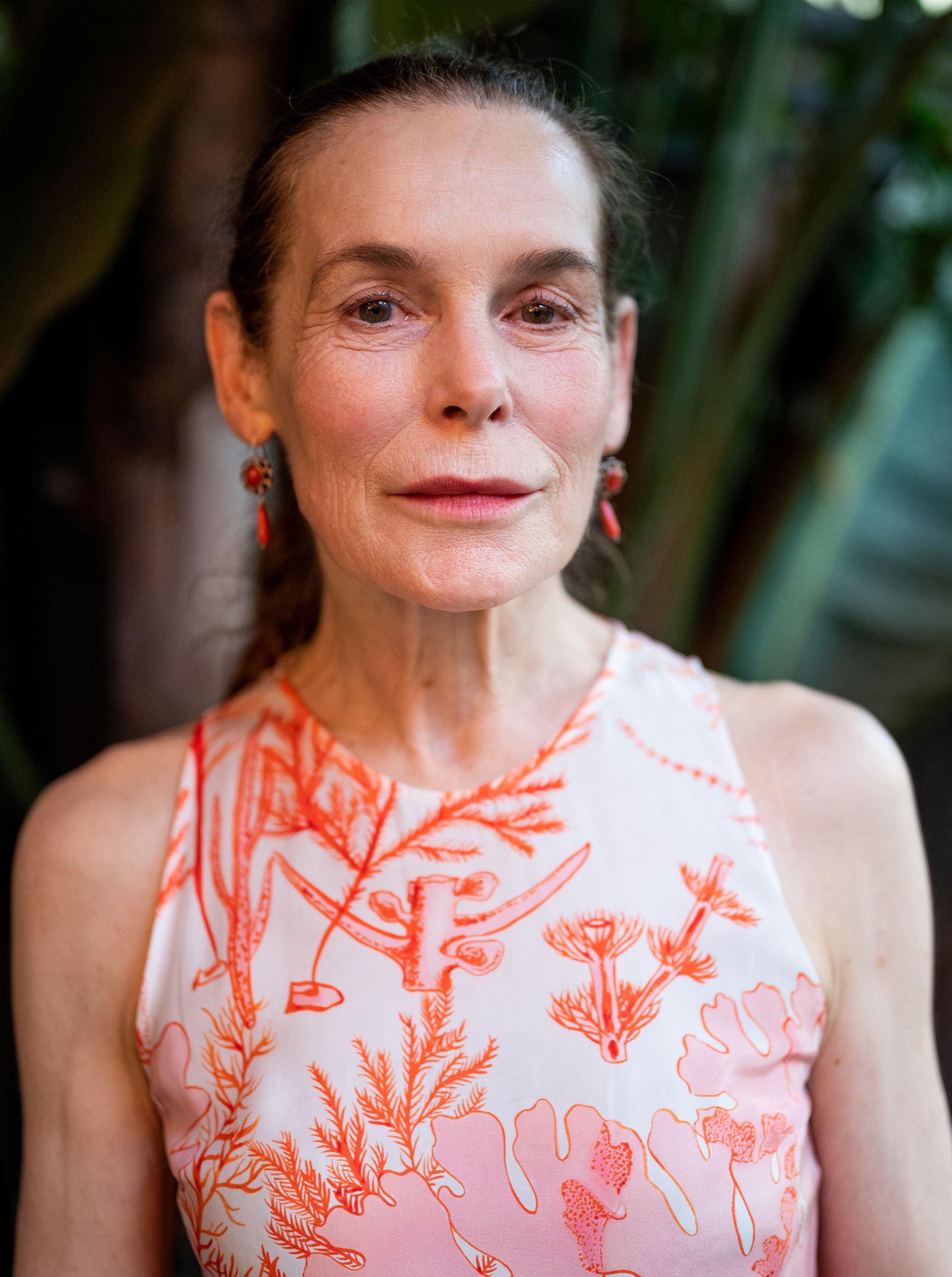
- Interviews
In “She Will”, Alice Krige Exposes the Trauma of a Forgotten Movie Star
Alice Krige is best known for a variety of roles in films such as the Academy Award-winning Chariots of Fire and Ghost Story. She starred opposite film legends Fred Astaire and Douglas Fairbanks and became iconic for her role as the “Borg Queen” in Star Trek.
Now, the actress takes on the story of Veronica Ghent in the psychological thriller She Will directed by Charlotte Colbert. Krige plays an aging film star who, after a double mastectomy, ends up in a healing retreat in Scotland with her warm-hearted youthful nurse Desi (Kota Eberhardt). The procedure of her surgery opens up queries about her authentic existence leading her to question and confront past traumas, including the abuse she undergoes on her first film set at the age of 14 at the hands of a director (played by Malcolm McDowell).
The interview was conducted via zoom.
You’ve had such a versatile career that covers over 40 years in entertainment. Looking back, how lucky do you feel you have been?
I have been immensely privileged to have the opportunity to creatively stand in another human’s psyche. It’s wonderful to commit to the journey of an actor, to live inside someone else’s head and heart space, to get as close as you can to how they are physically operating in this world. I have an extraordinary level of gratitude, to have been fortunate enough to have had an astonishing range of work, especially since I’m not one of those actors who can necessarily choose what role to play.
I’m offered often extremely violent parts, but I only accept such parts under very particular circumstances for I am enormously concerned about putting violence into the ether, into the collective consciousness. As an actor, you never work in isolation, you are always functioning within the creative exchange of a collaborative group, from the person who is putting the lights in the right place to the person who’s applying your wonderfully creative makeup. We also share this intensely intimate exchange with either another actor, writer or director, whether you know them before or not. The moment they say “roll cameras and action,” the set becomes a very sacred space for me. To be a working actor is an indescribably precious gift I never take for granted every time I embark on a piece of work. It’s a voyage of discovery where you step into the void and have an act of faith. People working creatively together to achieve a common goal is the human condition in action.
Did you find it easy to portray Veronica, to connect with this complicated persona?
The character of Veronica had a sense of culpability and guilt, that somehow, she asked for what happened to her. If I think back at that time period (I’m the same age as Veronica, I was 14 when she was) when someone got raped, the philosophy was: “You asked for it.” Which was a lack of wisdom. When you’re that young, you often think it’s your fault, that somehow you were responsible.
The character’s response to the hurt, the guilt was to bury it, to never talk about it again. And I believe that when one makes that choice, then most of the time the underlying stress manifests itself in the body. I understood those elements and it did not surprise me that Veronica suffered a traumatic illness later in her life. She builds a wall, a protective facade. In the very opening sequence, she puts on this mask. The more she wears it, the more she pushes people away. The more she pushes people away, the more isolated she becomes. The way she hangs on to her mask is not who I am, so for me that was a very interesting new space to inhabit.
How was your experience working with a first-time female director?
I’ve been directed by a woman twice before, so it was quite wonderful to work with another female director again. I loved the script and when I met Charlotte, there was an immediate connection, a wonderful exchange. We worked on a very intuitive, communicative basis. I told her to just talk to me from behind the camera for we were shooting very fast. And she did, it was delightful.
How much do you yourself believe in the unknown and in witchcraft? All just coincidences?
I think we all have innate capacities which we begin to understand or explore. I find such a possibility quite exhilarating. I personally suffer if I spend too long in the city because I live remotely. When you walk out at night, the California sky is dark and you can feel the cosmos if you open yourself to it. There are so many dimensions of play that we simply don’t acknowledge which to me is a potent source of vitality. And if I’m cut off from them, I begin to feel bereft and diminished and lost.